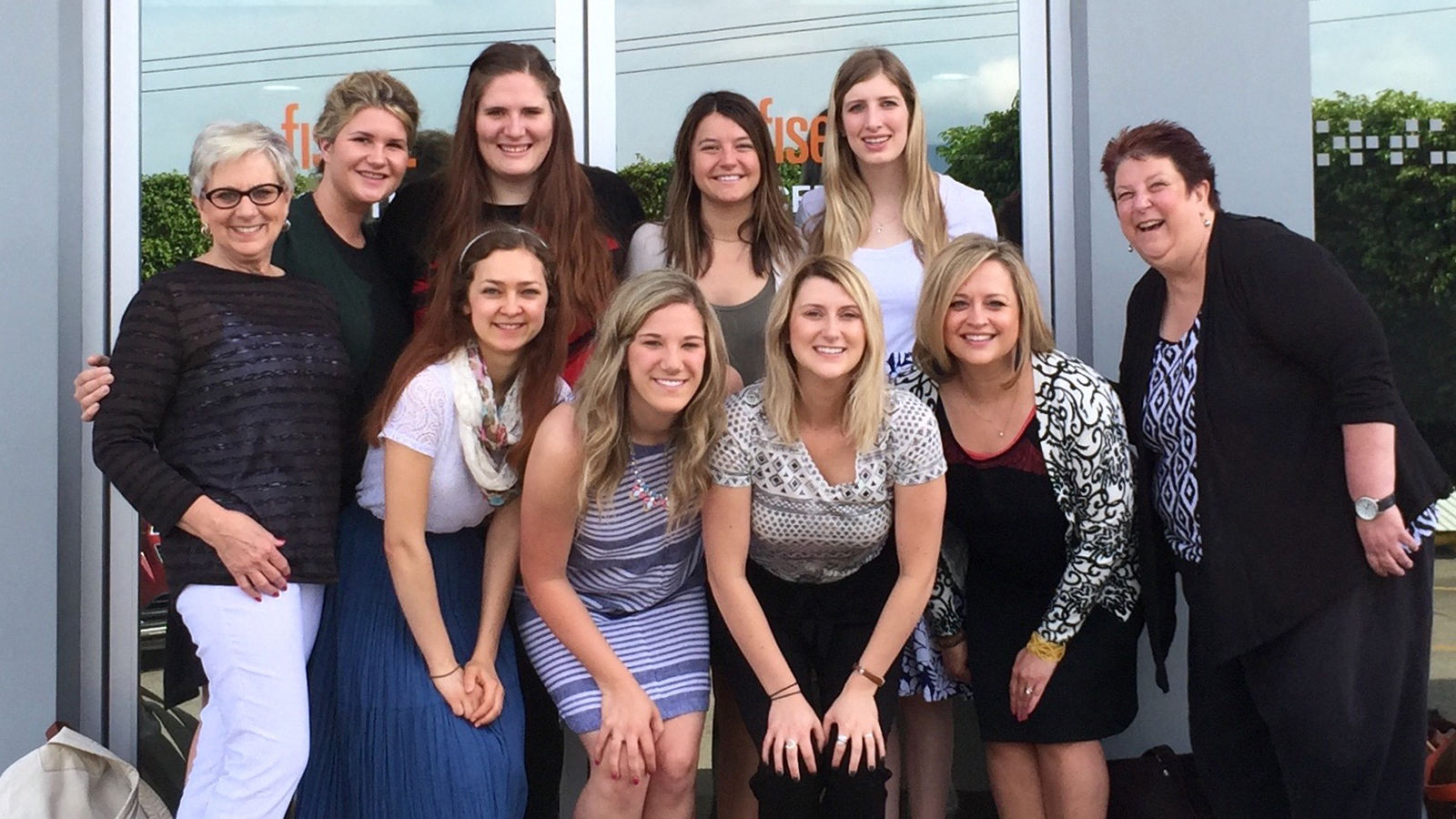
Closing the distance: SLP students provide accent modification through tele practice and study abroad
15 Nov 2017 By Kelcey Buck
Alicia Davis arrived at the University of Nebraska-Lincoln in 1997 with the hope of building on the accent modification skills she had developed in her 15 years as a school-based speech-language pathologist. Now, 20 years later, Davis has helped give students in Nebraska’s speech-language pathology master’s program the opportunity to work on their own accent modification skills through tele practice, as well as a two-week study abroad trip to Costa Rica.
Those opportunities for Husker students are thanks to a partnership with Fiserv, a financial services technology company headquartered in Brookfield, Wisconsin, that also has an office in Lincoln. A partnership that started in perhaps an unlikely place – a family get-together.
“In the fall of 2011, one of my graduate students was working with one of my English-language learner (ELL) clients, and her uncle was one of the vice presidents at Fiserv,” Davis, a lecturer in the Department of Special Education and Communication Disorders, said. “They were at a family gathering and he asked her how graduate school was going. She mentioned that she was working on improving one of her client’s spoken English language skills. He was very interested in that because they had been trying to get a program like that established at Fiserv, so he asked her to have me call him. I did, and that’s when the partnership started.”
After that initial phone call, the tele practice was established the next semester. Students at Nebraska began working with Fiserv associates in Heredia, Costa Rica, and Noida, India, to improve their spoken English so clients in the United States are able to better understand them during phone conversations.
Initially, Davis took the students to Fiserv’s offices on the south side of Lincoln to connect with the associates, but now they meet with them two nights a week from the Ricketts Computer Lab at the Barkley Memorial Center. Those twice-a-week sessions are 90 minutes each for one full semester, amounting to nearly 45 hours of services.
Three years after the tele practice got up and running, Davis teamed up with another lecturer, Diane Farrand, to sponsor a two-week study abroad trip to Heredia, Costa Rica, for students to meet and work with the Fiserv associates there in person.
“Our students get sometimes as many hours in the two weeks we’re in Costa Rica as they would get in with clients in a whole semester here at the Barkley Center,” Davis said. “That’s simply because we definitely are emulating a typical business day. We are at the Fiserv offices ready to work by 8 in the morning and we see clients straight through until 4:30 in the afternoon.”
The Nebraska students work with Fiserv associates in small groups of three or four individuals for hour-long sessions throughout each day. Davis pointed out that they also optimize the lunch hour by eating with the associates at the on-site cafeteria. This allows both the associates and the students to get extra practice in functional conversations.
Davis and Farrand are now planning for their third trip to Costa Rica with students, which will take place May 12-26, 2018. Davis said she learned from the first two trips that the preparation done with the students before departing for Costa Rica is a crucial element to making the trip a success.
“I don’t assume they understand everything when it comes to corporate culture. And even though Costa Rica sounds beachy and really appealing, it truly is a different and international living situation. I’m doing a much more thorough job of preparing them for the culture that they’re going to.”
It isn’t all work and no play for the group of Huskers during their two weeks in Costa Rica, however. They work at Fiserv Monday through Wednesday, and make the most of their free time in Heredia, a suburb of San José. They dine at a restaurant that sits high up on the hill, overlooking the lights of the entire city of San José. They have also visited coffee tasting and coffee brewing demonstrations, and shopped in the open-air markets.
The other four days of the week, they travel up to Monteverde, a mountain town about 100 miles northwest of San José. While there, students have gotten to tour a coffee plantation, go zip lining, and go hiking and birdwatching in the cloud forest.
Up to this point, the study abroad trip has been a self-funded opportunity for the students, with some assistance from a local Sertoma Club. The Department of Special Education and Communication Disorders has helped cover the cost of the faculty travel. Fiserv has also supported the Huskers’ trips.
“When we go to Costa Rica, one of the ways Fiserv really supports us is they cover the costs of our lodging, transportation and our meals while we’re working with Fiserv,” Davis said. “It makes the experience a lot more affordable for the students.”
Davis acknowledged that Fiserv understands the benefits of the partnership, both for their associates and for the students in Nebraska’s speech-language pathology program.
“It’s a two-way partnership, and they really get the value added for us as well as the value for them.”
As Davis continues to lead the students in the tele practice and prepares to lead a new group to Costa Rica in May, she reflects on what she has enjoyed the most about the development of Nebraska’s accent modification services.
“Watching the students grow from being not real sure of what they’re doing into real confident individuals – that’s been one of the huge successes. And we’ve been able to present about this trip, both at state and national conferences, and standing back and watching students share about their experience and get everybody else excited about what they’re doing, I get excited about that. I like to watch the students be successful.”
Special Education and Communication Disorders